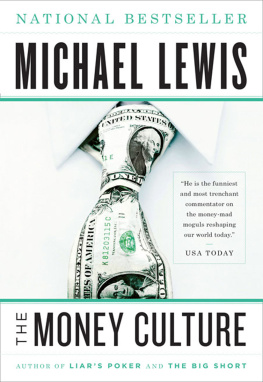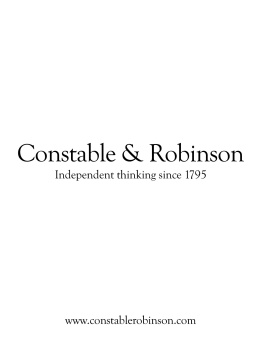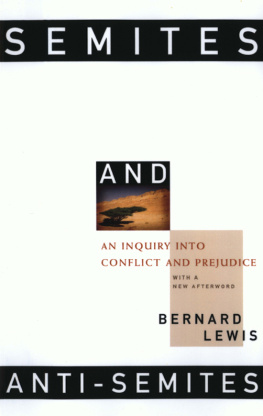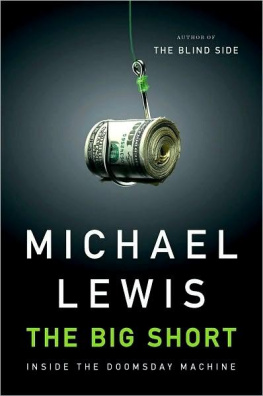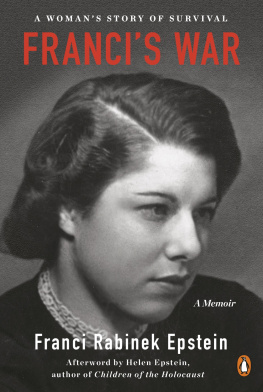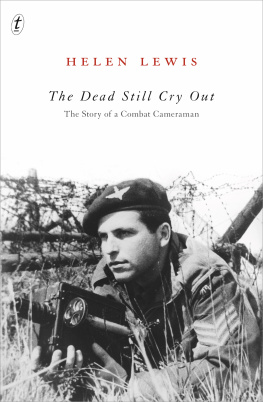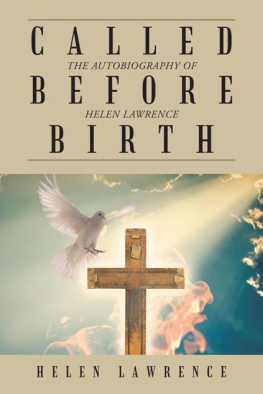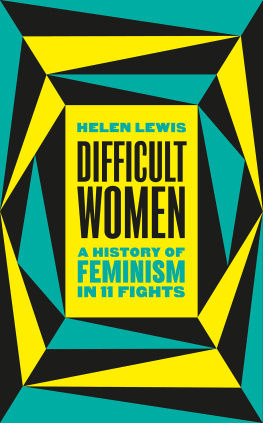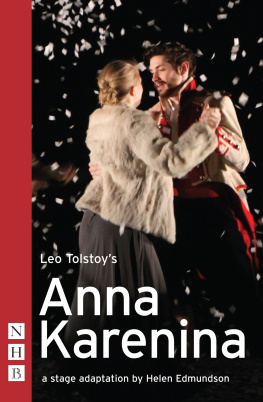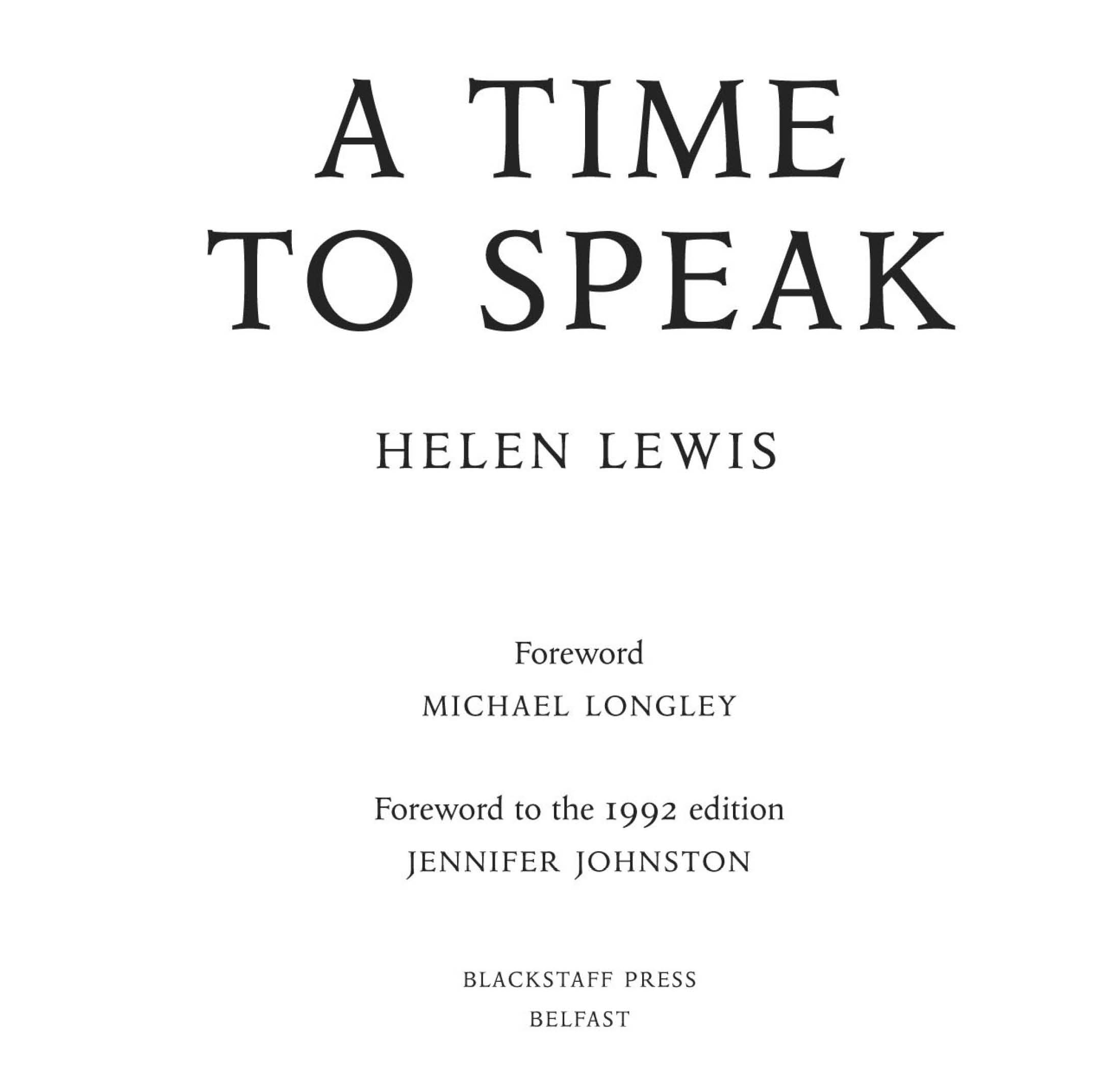Imprint Information
First published in 1992 by Blackstaff Press
This edition published in 2011 by
Blackstaff Press
4c Heron Wharf, Sydenham Business Park
Belfast BT3 9LE

Helen Lewis, 1992
Foreword and A Linen Handkerchief, Michael Longley, 2010
Foreword to the 1992 edition, Jennifer Johnston, 1992
Photograph of Helen Lewis, Pacemaker Press International, 2010
Photograph of A Family Wedding, Prague, Michael Lewis and Robin Lewis, 2010
All rights reserved
Helen Lewis has asserted her right under the Copyright, Designs and Patents Act 1988 to be identified as the author of this work.
Cover design by Dunbar Design
Produced by Blackstaff Press
A CIP catalogue record for this book is available from the British Library
EPUB ISBN 978-0-85640-870-0
MOBI ISBN 978-0-85640-871-7
www.blackstaffpress.com
Praise for Helen Lewis
Helen Lewis survived the greatest nightmare ever dreamed by man. Her story is appalling, mesmerising, and one reads with increasing gratitude for her clarity, honesty and courage.
Ian McEwan
Only the dead know the whole truth and some of those witnesses who survived have taken upon themselves the painful task of speaking for them This book is the testimony of a woman who has survived the unsurvivable.
Jennifer Johnston
In A Time to Speak Helen Lewis maps Hell and in so doing gives us an irreproachable work of art. Guiding us over the nightmare ground, she doesnt put a foot wrong. Her voice remains low-key, her style simple. Such modest utterance conceals the agony of recollection.
Michael Longley
It is a story of almost unbelievable suffering, but it is told in such a way as to leave the reader almost exhilarated remarkable for its elegiac simplicity and lucidity, its irresistible momentum, its formidable integrity and its impressive lack of self-pity or rancour. It is short, approachable, gripping and patently honest everybody should read it.
Independent
What singles this book out from other first-hand accounts of the Holocaust is Lewiss ability to see humanity where, in all fairness, she had no right to see it she refuses to dehumanise the very people who were trying to dehumanise her a rare achievement for someone in her position.
Guardian
Told in a matter-of-fact style which at times belies the horror of her story leaves a lasting impression, not so much of the terrible degradation and deprivation that was Auschwitz but rather of the little incidences of kindness, defiance and humility which, in the midst of all the heartbreak, continued to reflect the human spirit this book is a wonderful testament to all those who suffered during the Holocaust.
Sunday Tribune
To bear witness as she does in wonderfully graceful language to the very nadir of human experience is an heroic act a wonderful book.
Irish Press
a remarkable book remarkable above all in its dispassionate approach to unimaginable experiences All of this makes inspiriting, searing and enthralling reading. It is a book to cherish.
Patricia Craig, Independent on Sunday
Helen Lewis
Helen Lewis was born in 1916 in Trutnov in Czechoslovakia. She completed her grammar school education, then successfully auditioned for a place at Mila Mayerovs School of Dance in Prague. While studying for her diploma, she also began a course in Philosophy at the German University. She married in 1938, and in 1942, together with her husband Paul, she was deported to Terezn, the Jewish ghetto sixty kilometres north of Prague, and then in May 1944 to Auschwitz, where they were separated. After the liberation she returned to Prague to learn that her husband had not survived.
In 1947 she married Harry Lewis, an old friend who had escaped to Belfast just before the start of the war, and settled there with him the same year. After the birth of their two sons, she became involved in dance again, choreographing for theatre and opera. Her teaching eventually led to the foundation of the Belfast Modern Dance Group, which introduced modern contemporary dance to Northern Ireland.
A Time to Speak was first published in 1992 and brought Helen wider recognition as a writer, broadcaster and speaker. She often spoke about her experiences to community groups and in schools, a responsibility she took particularly seriously. Her contribution to the life of Northern Ireland was recognised by the award of honorary doctorates by the University of Ulster (1993) and Queens University, Belfast (1996) and by her appointment as MBE in 2000. She died on 31 December 2009.
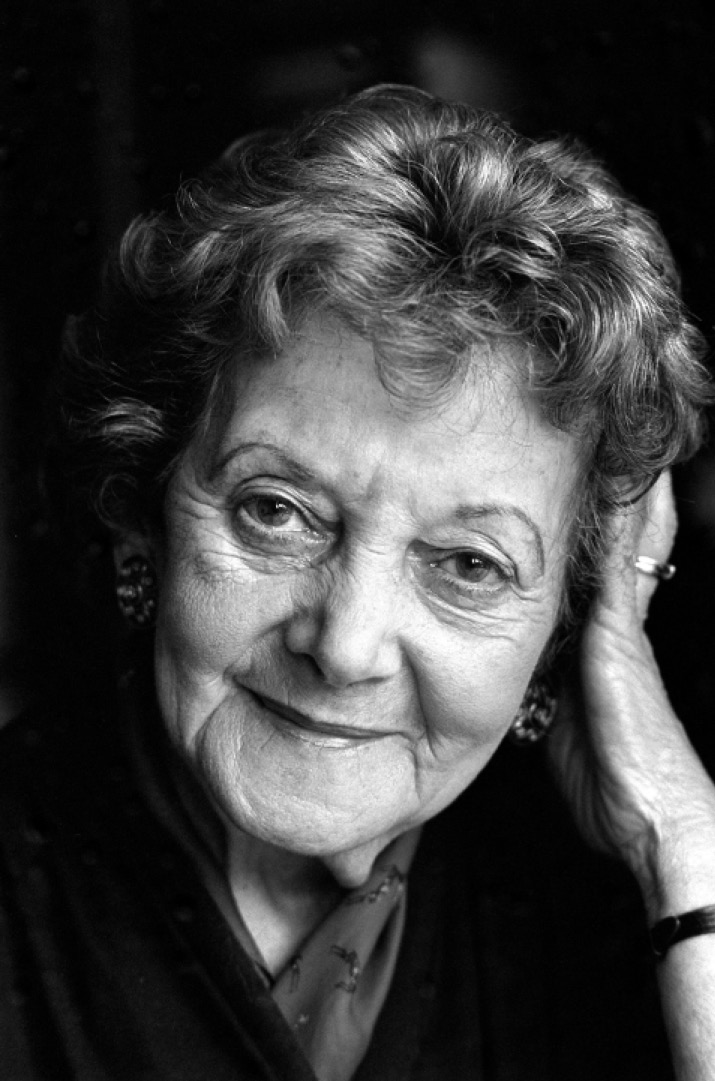
A Linen Handkerchief
for Helen Lewis
Northern Bohemias flax fields and the flax fields
Of Northern Ireland, the linen industry, brought Harry,
Trader in linen handkerchiefs, to Belfast, and then
After Terezn and widowhood and Auschwitz, you,
Odysseus as a girl, your sail a linen handkerchief
On which he embroidered and unpicked hundreds of names
All through the war, but in one corner the flowers
Encircling your initials never came undone.
Michael Longley
Foreword by Michael Longley
There are many people who have given their lives to dancing. But there are not too many who can truthfully say that dancing saved their lives. Yet that is what happened to me.
This was Helen Lewis speaking in an interview about how she survived the Jewish ghetto of Terezn, and then Auschwitz. In A Time to Speak she describes the escalation of horrors, and then the merciful sequence of flukes that brought her, against all the odds, to live in Belfast in 1947. For many years a well-known choreographer and teacher of dance in the city, she founded the Belfast Modern Dance Group in the early sixties. Her artistic response to the Holocaust was first of all expressed through dance, in such works as Phases and There is a Time dance theatre that would have seemed rather avant-garde in the Northern Ireland of the time.
Encouraged by her sons Michael and Robin, Helen started to write A Time to Speak in 1986, composing it in longhand for her husband Harry to type out on his antique Olivetti. In a letter to me Robin Lewis says: It crystallised many years of oral recounting to her family ... The birth of her first grandchild Daniel in October 1986 was almost certainly the stimulus which led her to create a permanent written record of her experiences for another generation. Helen asked me to look over her work. I felt honoured when heavy envelopes started dropping through our letterbox containing drafts of the chapters that would eventually become her astonishing memoir. We would meet in my home or just down the road in her house to look over each new instalment. Harry would pop his smoky head round the door. Whod have thought I had married such a pearl, he would quip. Helen was a natural stylist and storyteller. I was no more than a French polisher. I recommended Helens book to Anne Tannahill of Blackstaff Press, who later described the publication of A Time to Speak as the highlight of her career. With a passionate foreword by Jennifer Johnston, the book appeared in October 1992. Enthusiastic reviews and articles followed and it became an Irish bestseller, serialised on rt, published in America, and in translation in Italy and the Czech Republic.


